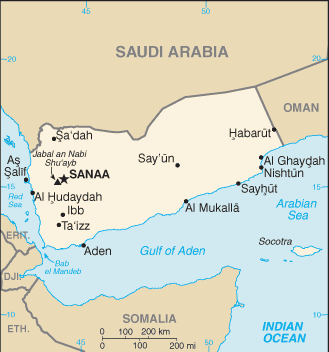In March of 2015, Saudi Arabia attacked Yemen with an eye toward installing the former Hadi government back in power. As part of the invasion, they imposed a full-scale naval blockade on the nation, which was a huge deal because Yemen imports the vast, vast majority of its food from abroad.
 It didn’t take long for food prices to skyrocket, as shipping companies reported open-ended delays as they were routinely stopped by multiple Saudi and coalition ships, searched, searched again, detained again, and sometimes taking weeks or even months to get from Yemeni territorial waters to being allowed to dock in a port. Even then, it was generally only ports in Saudi-held parts of Yemen.
It didn’t take long for food prices to skyrocket, as shipping companies reported open-ended delays as they were routinely stopped by multiple Saudi and coalition ships, searched, searched again, detained again, and sometimes taking weeks or even months to get from Yemeni territorial waters to being allowed to dock in a port. Even then, it was generally only ports in Saudi-held parts of Yemen.
Heavily criticized as a major human rights problem, and just one of many in the Saudi war, Saudi Arabia has totally not only denied that the naval blockade amounts to a war crime, but insists the naval blockade never happened, insisting that the huge fleet of ships is just there to ensure that cargo is “legal” before it enters Yemen.
Saudi Maj. Gen. Ahmed Assiri insisted that calling it a naval blockade “gives the wrong impression,” despite it doing exactly what a naval blockade does, and despite Saudi coalition officials referring to it as such earlier in the war. Assiri also claimed the UN was allowed to use airplanes to deliver aid to the capital city of Sanaa, which would be a thing if the Saudis hadn’t heavily bombed the airport to prevent aid planes from landing earlier in the war.


